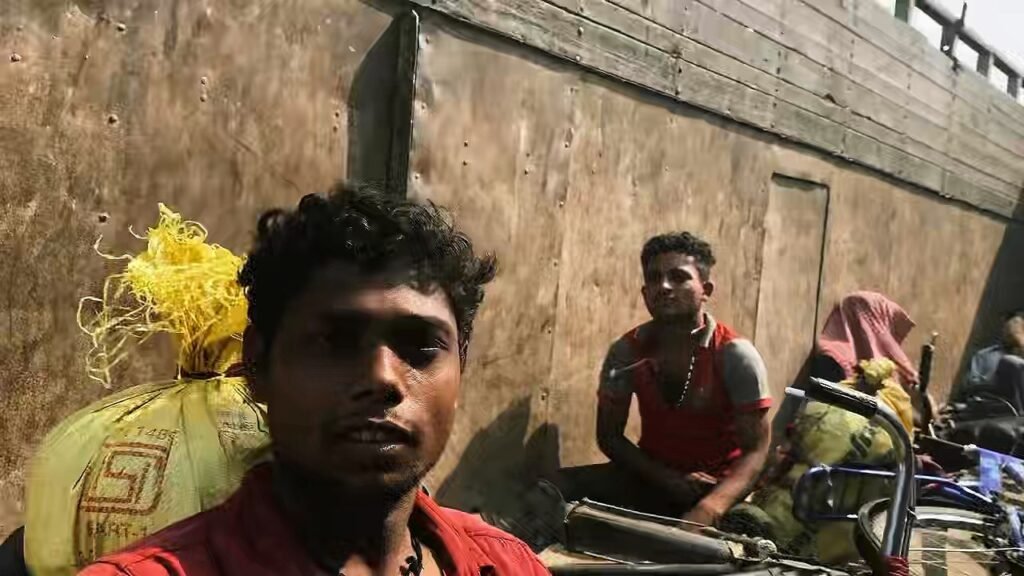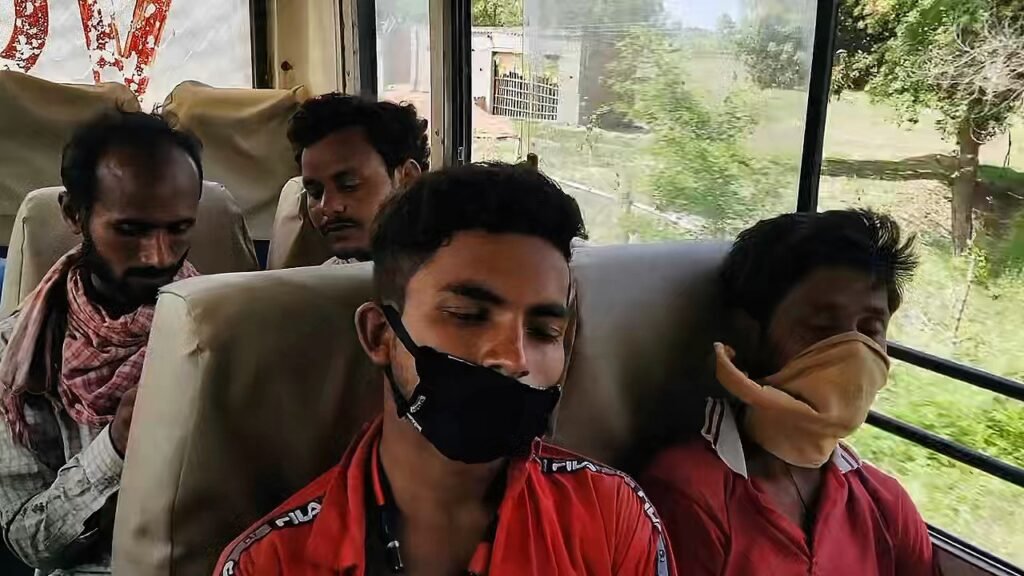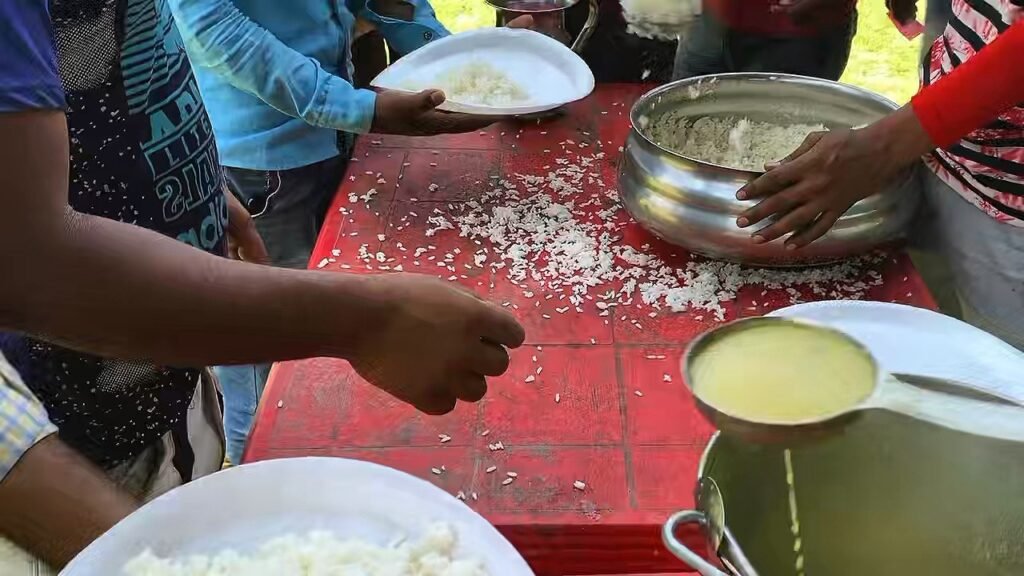1232 Kms Review : 1232 KMS, directed and written by Vinod Kapri, follows the journey of seven migrant laborers from Ghaziabad to Saharsa during the nationwide lockdown imposed by the Indian government due to the COVID-19 pandemic. The documentary portrays their struggles, the hardships they faced, the injustices they endured, and the unexpected assistance they received along the way. Ultimately, it sheds light on the profound class disparity prevalent in India, a reality often acknowledged but seldom addressed.
Movie Ratings
| Release Date | 24 March 2021 |
|---|---|
| Language | Hindi |
| Genre | Documentary |
| Duration | 1h 26min |
| Director | Vinod Kapri |
| Writer | Vinod Kapri |
| Cinematography | Hemanti Sarkar |
| Music | Vishal Bhardwaj |
| Producer | Unbulleted list, Bhagirathi Joshi, Sakshi Joshi |
| Production | Bhagirathi Films |
| Certificate | 13+ |
Released on March 22, 2021, the anniversary of the pandemic’s onset, the documentary serves as a stark reminder of the privilege enjoyed by many amidst the crisis. While some celebrated the occasion with frivolity, the film underscores the stark contrast between their abundance and the migrants’ dire circumstances.
1232 KMS is helmed by Vinod Kapri, with executive producers Manisha Mudgal and Guneet Monga, and consulting producer Smriti Mundhra. The music, composed by Vishal Bhardwaj with lyrics by Gulzar, features vocals by Rekha Bhardwaj and Sukhwinder Singh. The documentary captures the journey of these migrants, led by Kapri and including Ritesh Kumar Pandit, Ashish Kumar, Ram Babu Pandit, Mukesh Kumar, Krishna, Sonu Kumar, and Sandeep Kumar, as they traverse from Ghaziabad to Saharsa on their bicycles.
Safar nahi tha aasan, par kuchh log ummeed liye ghar ki or badh chale the.
— Disney+ Hotstar (@DisneyPlusHS) March 24, 2021
A small tribute to the millions of migrants who went through the test of time just to return to their loved ones during the 2020 lockdown.#HotstarSpecials1232KMS now streaming on @DisneyplusHSVIP pic.twitter.com/y2lO9RXDwt
Rather than delve into a detailed recount of the documentary’s events, it’s more pertinent to discuss its emotional impact. As someone from a middle-class background in Siliguri, I acknowledge my privilege compared to the subjects portrayed. The past year, marked by limited outings and essential errands, has made me acutely aware of the stark realities depicted in the film—the largest mass migration in human history.
Amidst such hardships, witnessing the callousness of those privileged enough to celebrate only exacerbates the sense of injustice. The migrant laborers, bearing the brunt of a crisis sparked by the affluent, deserve our empathy and support, not indifference and frivolity.
As we approach the one-year mark of the migrant exodus, with another surge in COVID-19 cases looming, it’s crucial to acknowledge our collective failure. Our actions, or lack thereof, directly impact the lives of those less fortunate. It’s imperative to act responsibly, exercise our voting rights thoughtfully, and prioritize humanity over divisive ideologies.
In essence, 1232 KMS serves as a poignant reminder of our shared humanity and the imperative to translate empathy into action. It’s not enough to feel; we must act, for the sake of those whose struggles often go unnoticed amidst our privilege and indifference.



